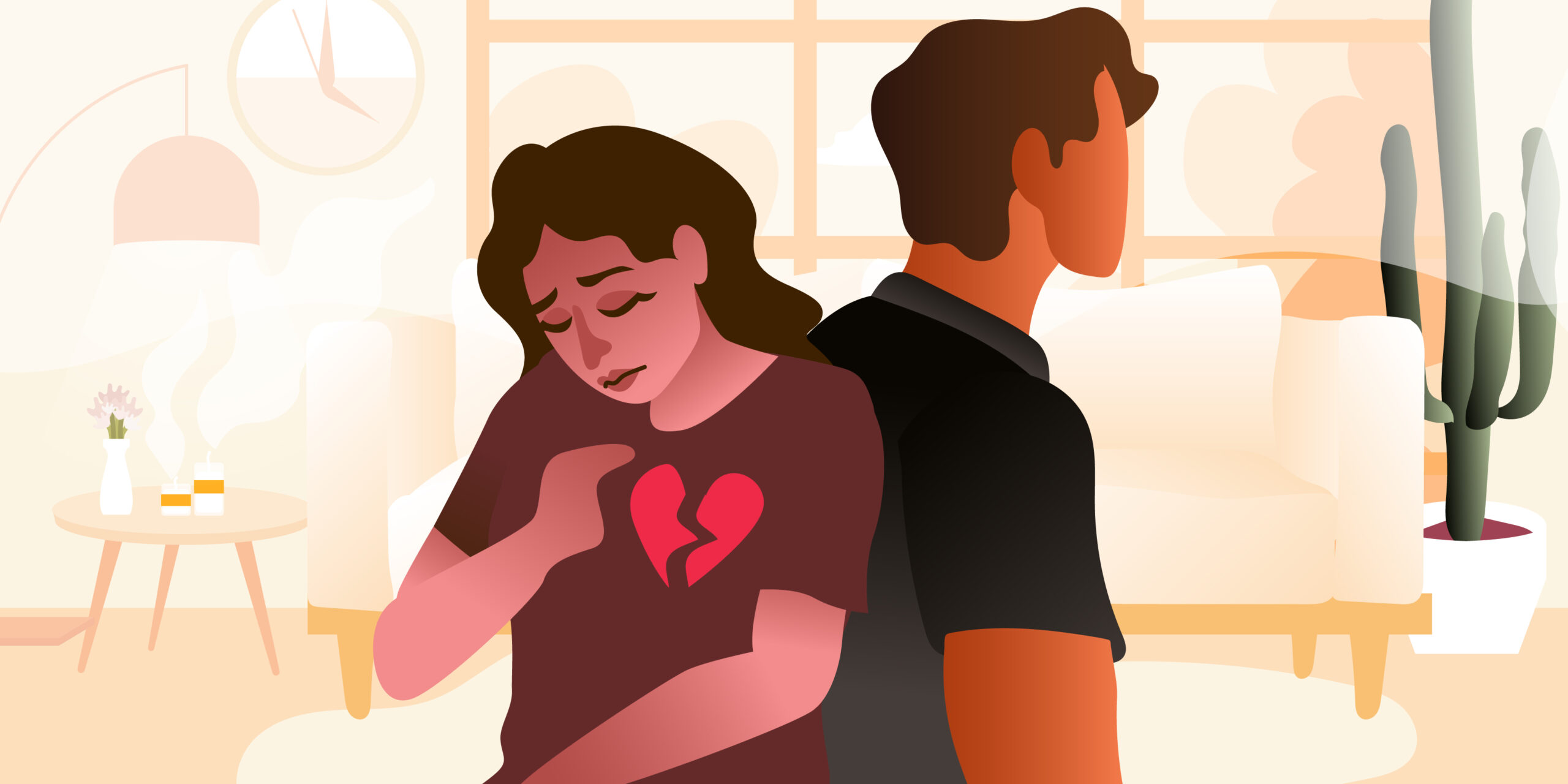
A one-sided relationship occurs when one person (giver) consistently invests more physical, emotional, or financial effort than the other person (taker). Though the term is often associated with romantic partnerships, it can also apply to friendships or family dynamics.
Of course, no relationship is perfectly balanced every single day—some days you might be 50-50, other times may be 40-60, and sometimes one partner might need extra support, shifting things to 20-80. However, in a one-sided relationship, one person always puts in that 90 percent, while the other barely gives 10.
Signs
If you’re currently in a relationship and suspect it’s becoming one-sided, or if you’ve just started dating someone and want to avoid falling into this trap, here are some signs to look out for.
1You’re the only one who initiates and makes plans.
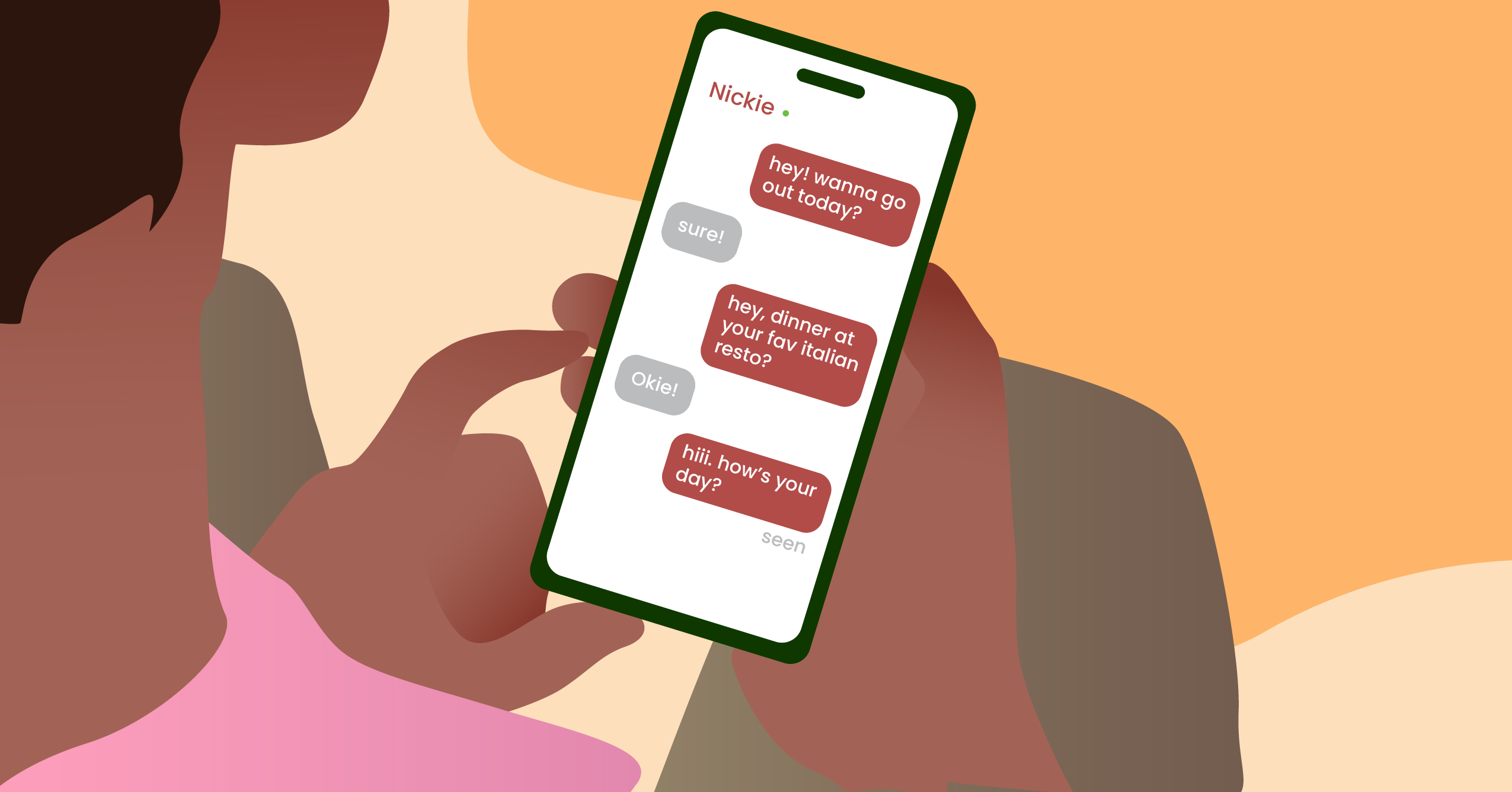
One of the earliest signs that you might get into a one-sided relationship is that you always make plans, send the first text, or initiate anything. They never try to ask you out, or if they do, it feels half-hearted.
Sometimes, especially early in the relationship, a partner might act like they had plans but never follow through. You’ll hear things like, “Oh, I was just about to suggest this place…” or “I was planning to hang out with you, but you messaged me first.” Yet, they never make any effort to set a date or meet up.
-
₱7,530.00
-
₱3,400.00
-
₱4,045.00
-
₱2,975.00
2You’re the only one who makes sacrifices in the relationship.
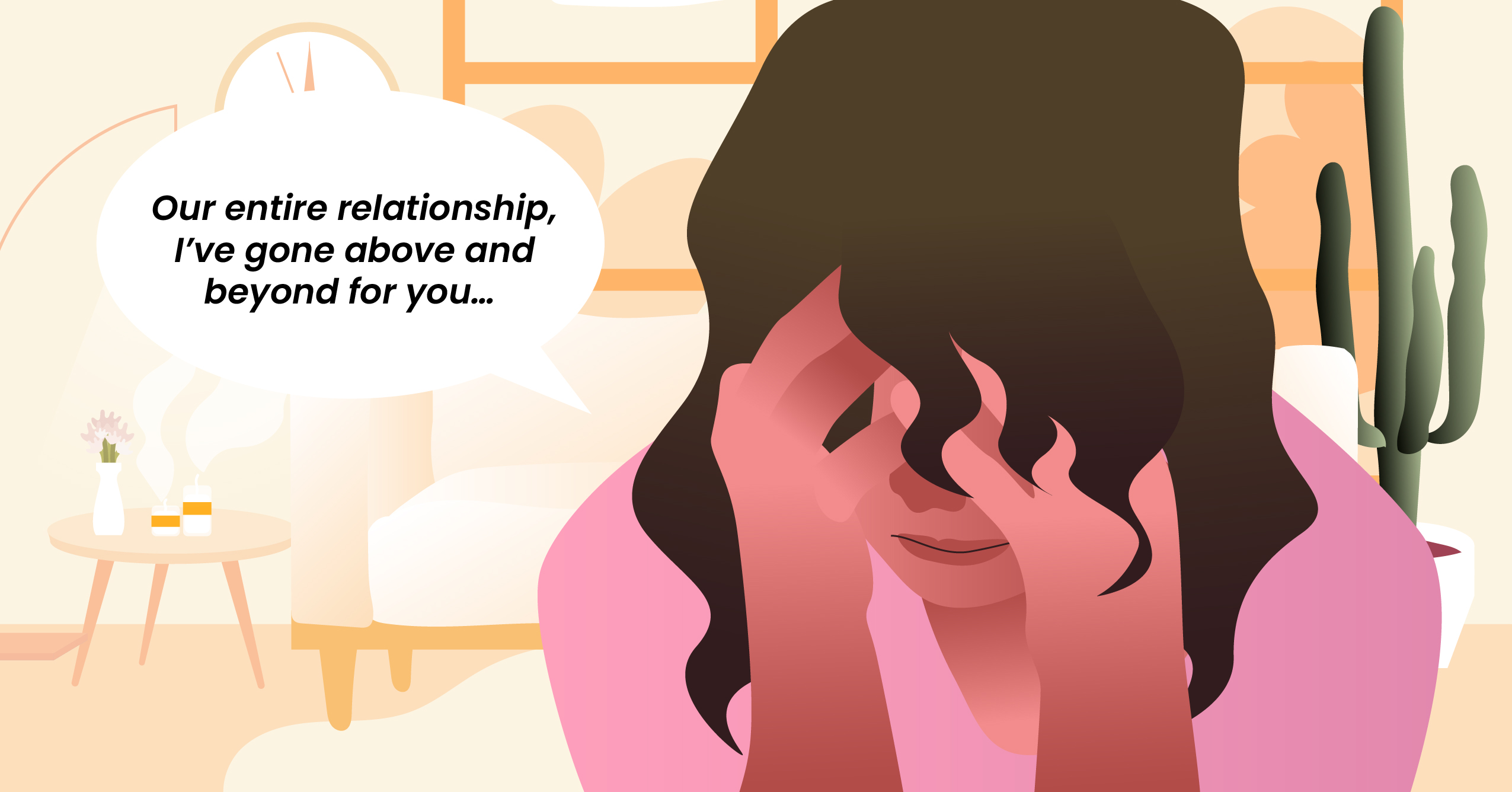
If you have extra minutes to spare, we recommend watching this scene from the classic rom-com The Break-Up. Jennifer Aniston’s Brooke and Vince Vaughn’s Gary perfectly illustrate a one-sided relationship.
But if you’re short on time, here’s a quick recap: Brooke and Gary break up because Brooke is exhausted from carrying the mental and physical load of their relationship. Hijinks ensue, but when they try to reconcile, Brooke invites Gary to a concert he’s not into, and he misses it. This leads Brooke to say:
“Our entire relationship, I’ve gone above and beyond for you… for us. And I mean I’ve cooked. I’ve picked your shit off the floor; I’ve laid out clothes for you like you were a four-year-old. I support you… I supported your work. If we have dinner, or anything, I make plans. I take care of everything… And I just don’t feel you appreciate any of it. I don’t feel you appreciate me. And all I want is for you to show that you care.”
For those who’ve been in or are currently stuck in a one-sided relationship, Brooke’s words hit hard.
If you’re the giver in a one-sided relationship, you’ll tend to sacrifice more of your time, money, and personal needs for the sake of your partner. You might go to events you don’t vibe with, watch movies that aren’t within your preferred genre, or even contribute financially to help them out. You might even move into a new place, transfer to a new job, or give up certain hobbies to accommodate them.
Of course, you love your partner, so you give them everything you’ve got. But deep down, a part of you might feel like you’re being taken for granted. That nagging feeling that no matter how much you give, it’s never fully appreciated.
On the other hand, your partner prioritizes only the things they like, never attending events or doing activities that matter to you. They might say things like, “It’s just not my thing,” making it clear they’re unwilling to compromise.
-
₱2,695.00
-
₱4,045.00
-
₱4,745.00
-
₱4,045.00
3You’re always the one apologizing and taking accountability.
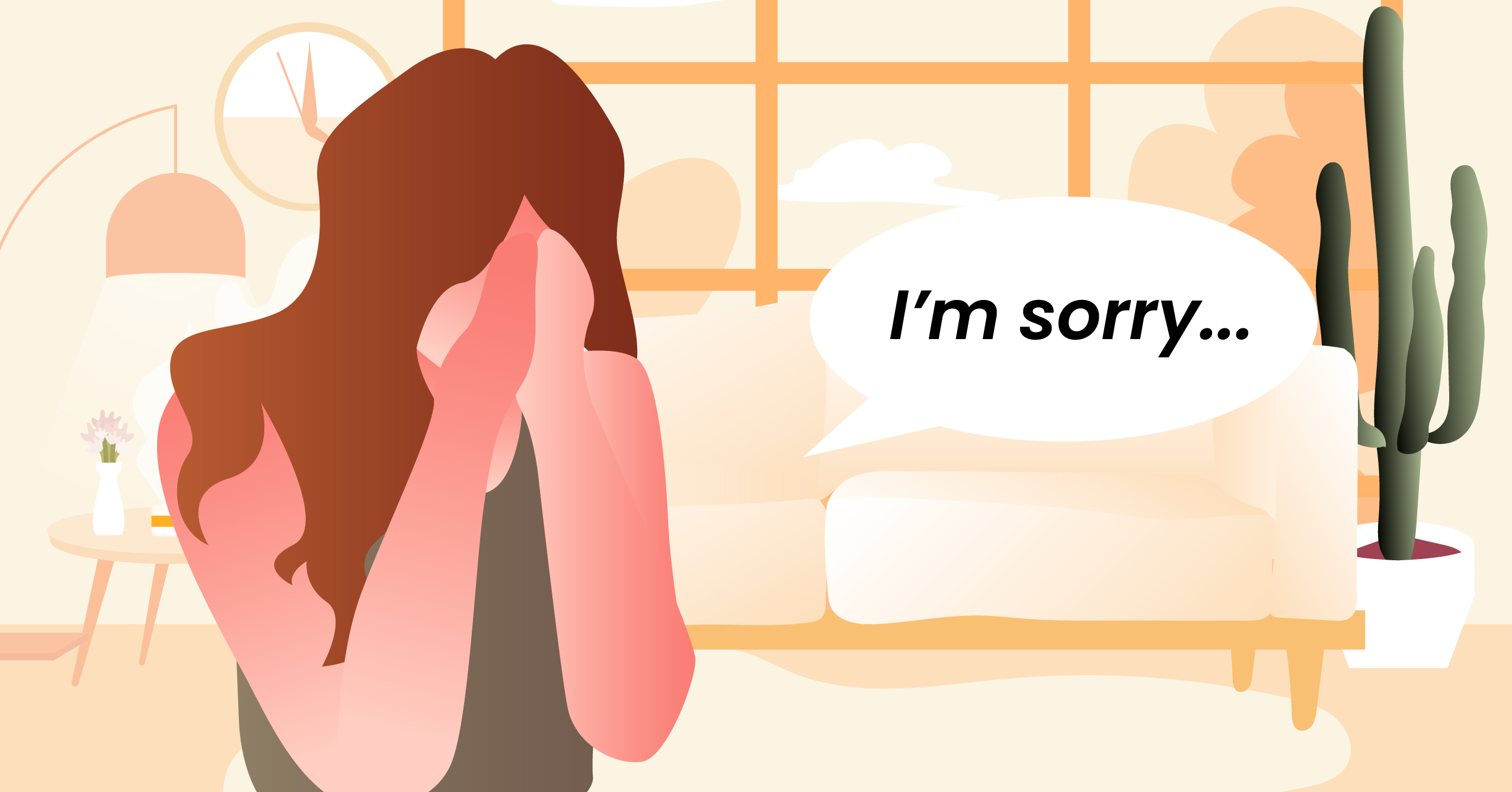
Do you find yourself apologizing first whenever there’s a conflict, even if it’s not your fault? If your partner blames you for everything and does not take accountability for their mistakes, that’s a sign that you’re having an unbalanced dynamic in the relationship.
4You’re the primary decision-maker in the relationship.
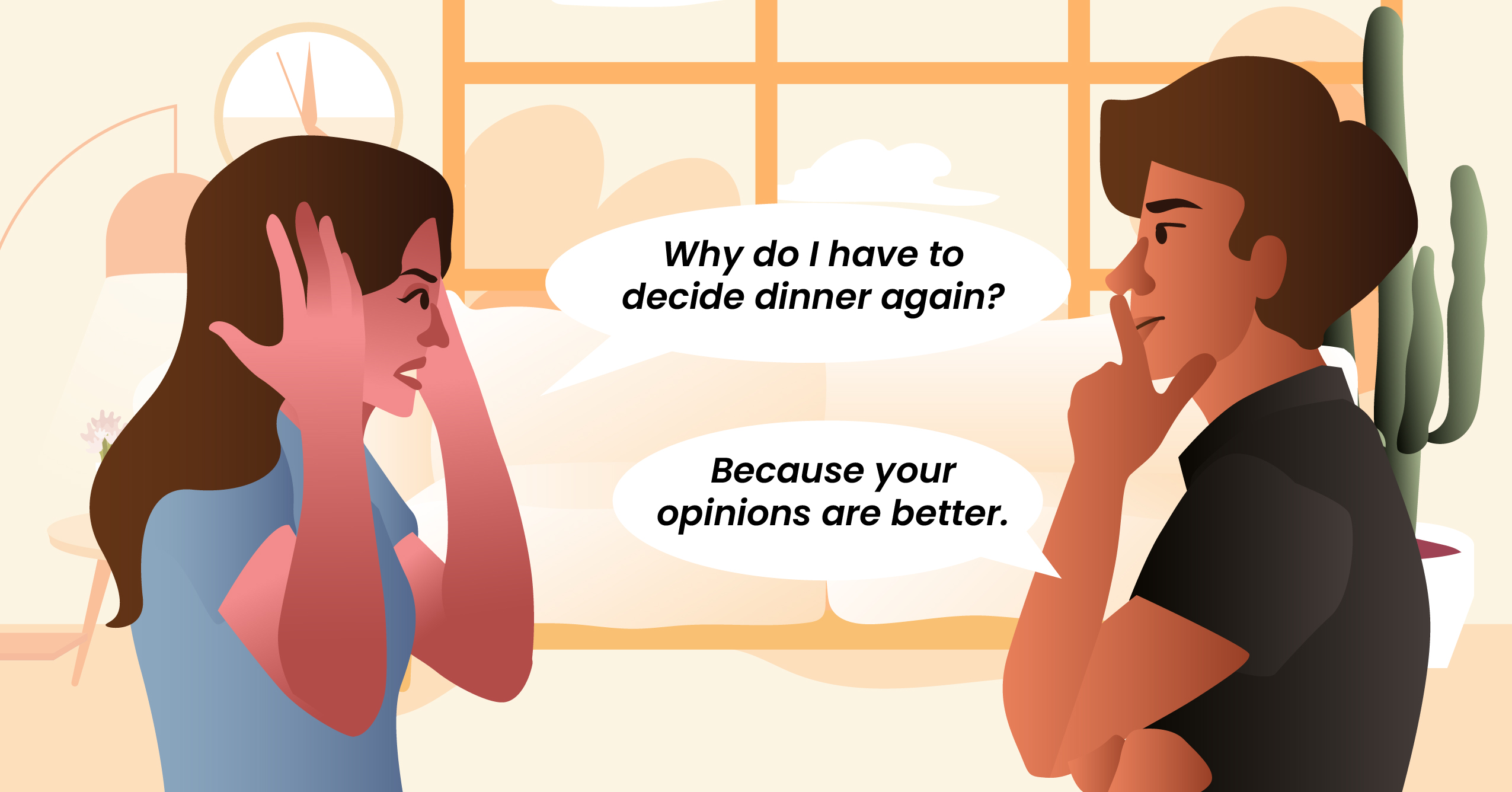
Whether it’s deciding what to have for dinner or making holiday plans, your partner seems to rely on you for every decision.
They might say it’s because they think “your opinions are better,” but it often feels like they’re just offloading the responsibility onto you. And when you finally make a choice that doesn’t quite align with their preferences, they may subtly push for option B, making you second-guess your decision.
5You keep justifying their unfair behavior.
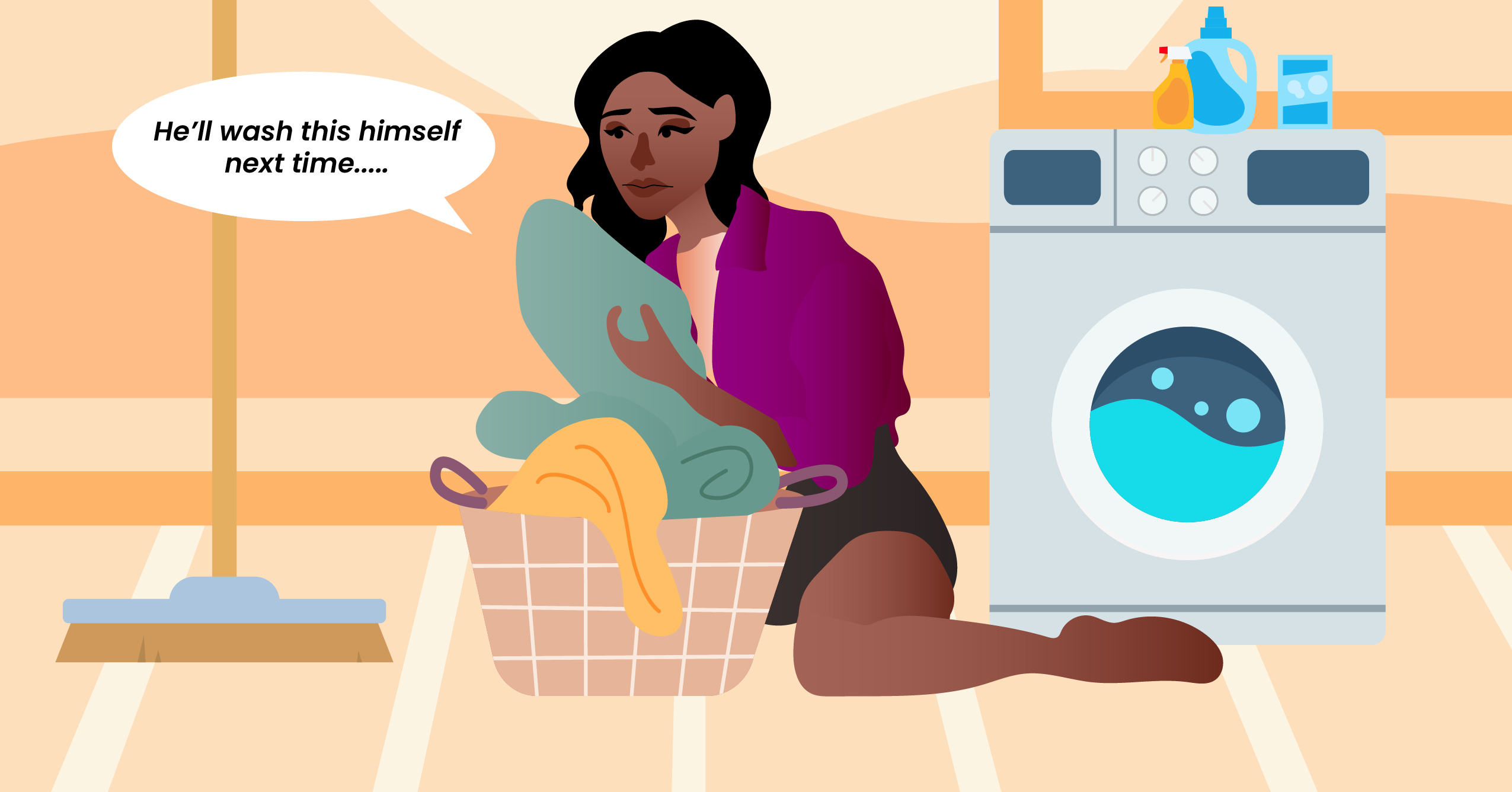
A clear sign you’re stuck in an unbalanced dynamic is when you constantly make excuses for your partner’s lack of effort. Maybe they don’t speak your love language, and instead of addressing it, you convince yourself it’s just not who they are, even though you’ve gone out of your way to show your love in ways that don’t come naturally to you.
When they don’t make plans with you, you might tell yourself—or your friends—that they’re just busy or tight on money, even though they seem to have time for everything else. If they don’t text or call but can make time for their barkada or mobile games, you might brush it off, saying they need space, even when they don’t even say goodnight. And when they don’t help around the house, you might rationalize it by thinking they weren’t raised to do chores or need constant direction instead of acknowledging that they’re too lazy to help you.
Part of loving someone is accepting their flaws, so it’s easy to slip into justifying your partner’s behavior—or lack of it. But when you start making too many excuses, it can cross the line into disrespecting yourself.
6It feels like you’re not truly connecting on a deeper level.

You’ve probably heard the term “feminine energy” floating around, often tied to the idea that women putting too much effort into relationships tend to suppress it. While “feminine energy” isn’t backed by concrete studies, there’s some truth to the concept.
When you’re always in survival or “provider” mode, it’s hard to embrace vulnerability or “feminine energy” with your partner. You might feel you need to take care of them, and due to their lack of effort, you can’t fully trust them to support you. This struggle to open up can make the relationship feel less deep and meaningful.
Effects
The unfortunate reality of a one-sided relationship is that it doesn’t just impact the relationship itself—it mainly affects the person putting in all the effort. When you’re constantly giving while your partner only takes, it can lead to some serious issues:
1You feel emotionally drained.

Burnout isn’t just solely related to jobs. It can also be felt in relationships, particularly with givers in a one-sided relationship.
When you’re shouldering the emotional, physical, and financial burdens alone, exhaustion, feelings of being unloved, and a lack of support can set in. Seeing your partner’s consistent lack of effort may lead you to question their love, further intensifying your negative emotions.
2You may end up feeling resentment and contempt toward your partner.
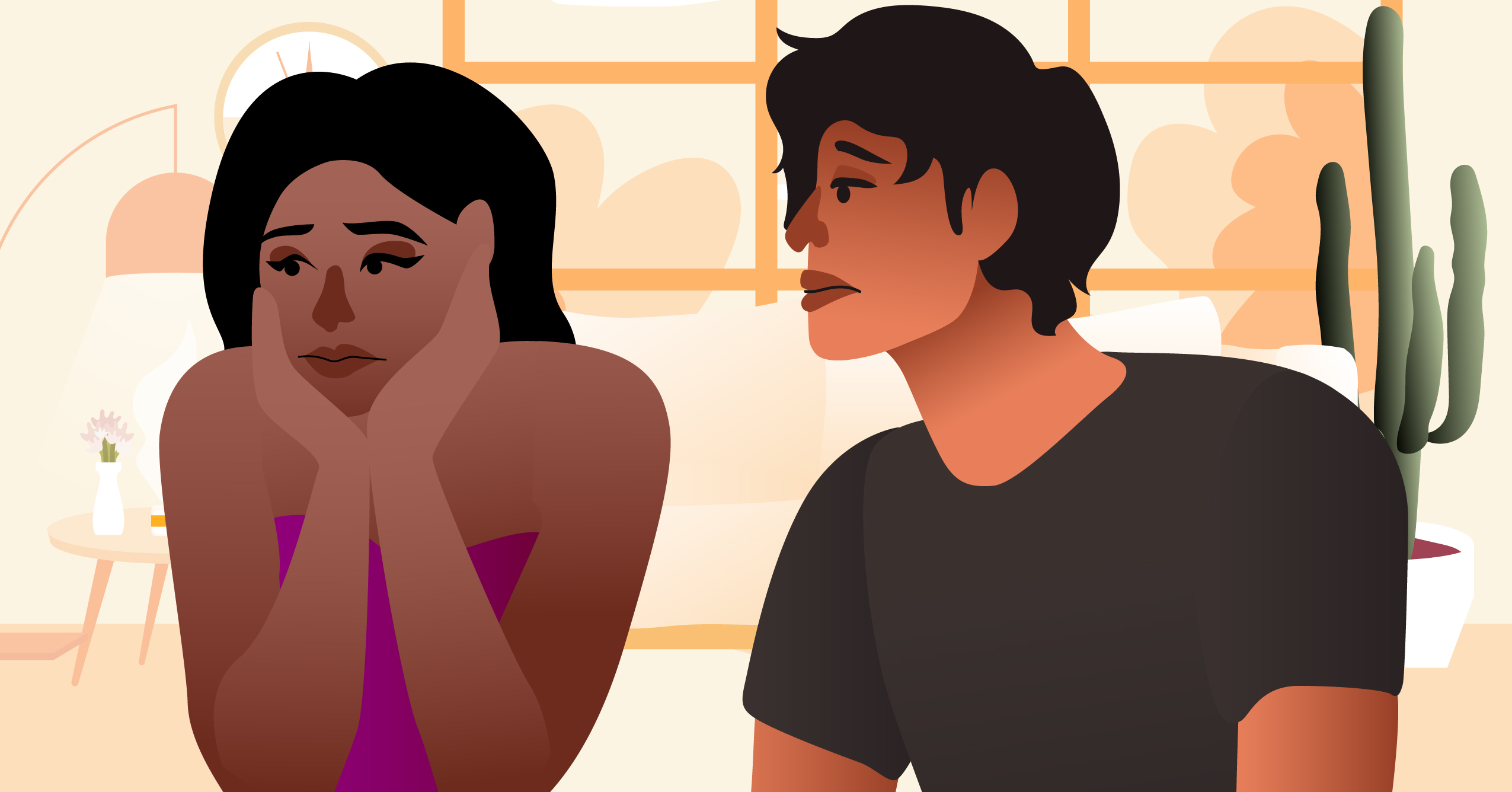
According to the Cambridge Dictionary, resentment is “a feeling of anger because you have been forced to accept something that you do not like.” If you’re feeling this way, you might become distant, avoid communication about your frustrations because you see your partner as a lost cause, or are irritated by their presence.
This is also when contempt kicks in, one of Gottman’s Four Horsemen—negative communication styles that can spell the end of a relationship. Other communication styles on this list are criticism, defensiveness, and stonewalling.
Contempt involves mocking your partner, making sarcastic remarks, cracking offensive jokes at their expense, and belittling their hobbies or interests. It often stems from a sense of entitlement or frustration— you believe you’re “better” than them because you lead the relationship.
Please note that contempt is a highly toxic behavior in a relationship. While feeling unappreciated is tough, there are healthier ways to communicate your needs to your partner.
-
₱7,595.00
-
₱4,745.00
-
₱3,395.00
-
₱3,395.00
3Conflicts become more frequent over time.

As the giver becomes exhausted from constantly apologizing to maintain peace and do all the work, more frequent and intense fights may follow.
4Your sex life isn’t as active as it once was.

Another common effect of one-sided relationships is a lack of intimacy or a “dead bedroom.” When the giver is consumed by resentment and exhaustion from carrying the relationship, sex often falls by the wayside.
Also, in many one-sided relationships, the bedroom dynamics become unhealthy, with the taker focusing solely on their own pleasure and neglecting the needs of their partner. As a result, the giver loses interest in doing the deed, as they aren’t enjoying it anyway.
5Increased stress and loneliness in the relationship start affecting other areas of your life.

Being a giver in a one-sided relationship can lead to isolation and loneliness. You might feel like no one, not even your partner who promised to love and support you, has your back.
This loneliness can spill over into other areas of your life, affecting your career, passion projects, physical health, and overall well-being.
Causes
Now, it’s easy to blame the takers and say that they’re evil, manipulative people. Though most cases involve an unsupportive and selfish partner, several factors still contribute to an unbalanced relationship.
1Poor Communication
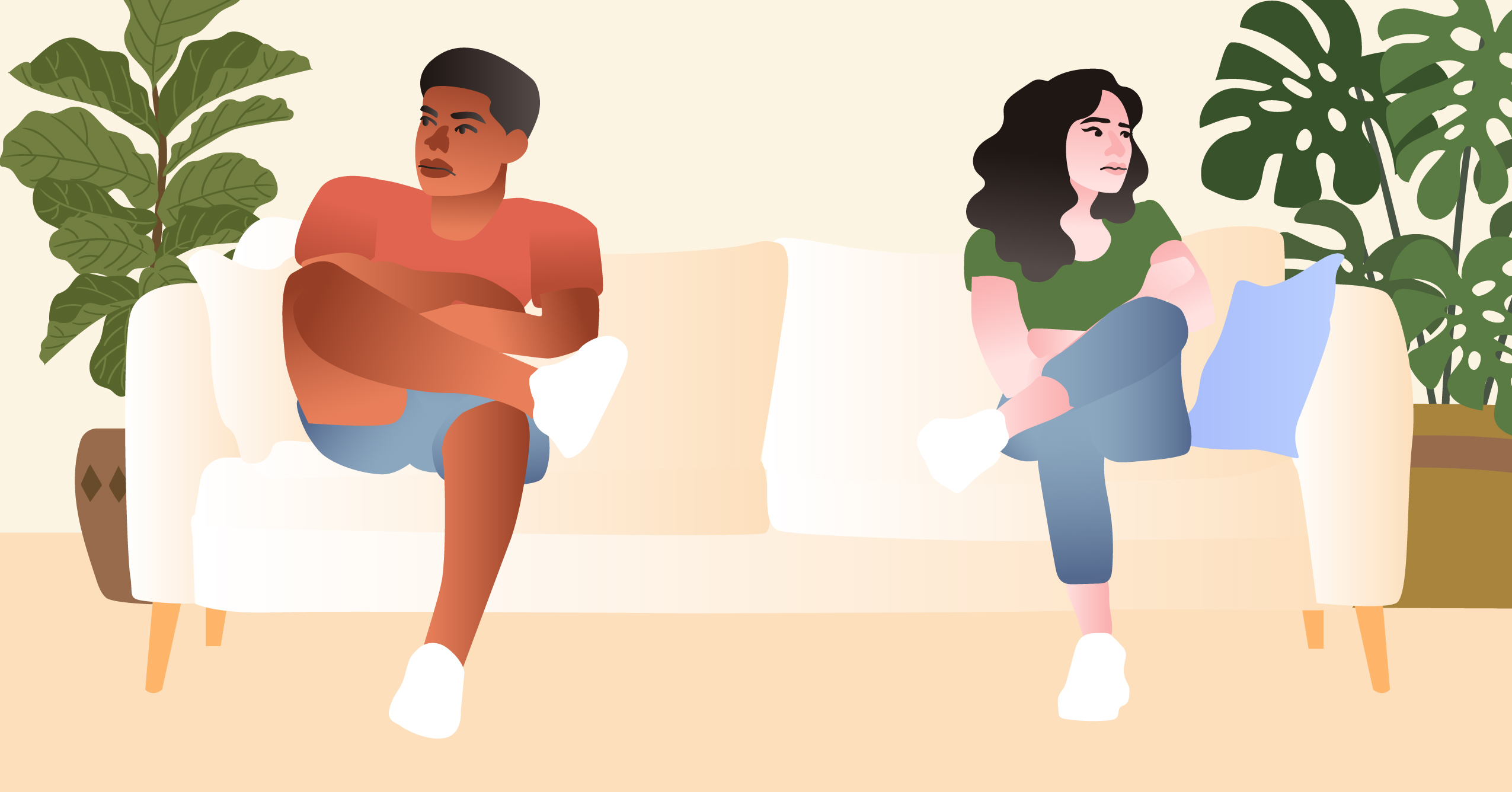
Sometimes, the root cause of an unbalanced relationship is poor communication. If the giver doesn’t clearly communicate their needs and desires, the partner might not realize there’s an issue. They could assume that everything is fine or that their way of expressing love is sufficient.
For example, if the giver feels undervalued because they prefer dining out and their partner never takes them to restaurants, the partner might not understand the problem. They might think showing love through cooking meals at home or giving small gifts is already enough for their partner.
2People-Pleasing Tendencies
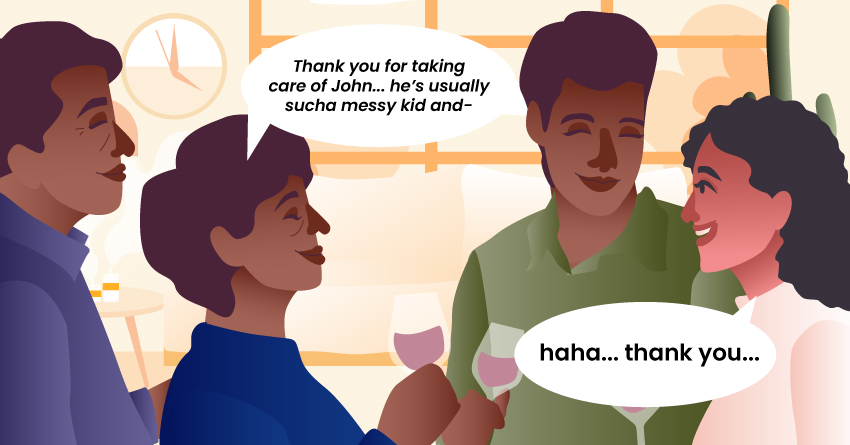
Another possible reason for an unbalanced relationship is people-pleasing tendencies. If the giver struggles with this, they might prioritize their partner’s approval over their needs. Now, if you suspect that you might be dealing with people-pleasing, here are some signs to look out for, according to Medical News Today:
- Couldn’t say no to requests.
- Takes on extra work even when you’re already stretched thin.
- Hesitates to voice your own opinions or preferences.
- Overcommits to plans and responsibilities.
3Attachment Issues
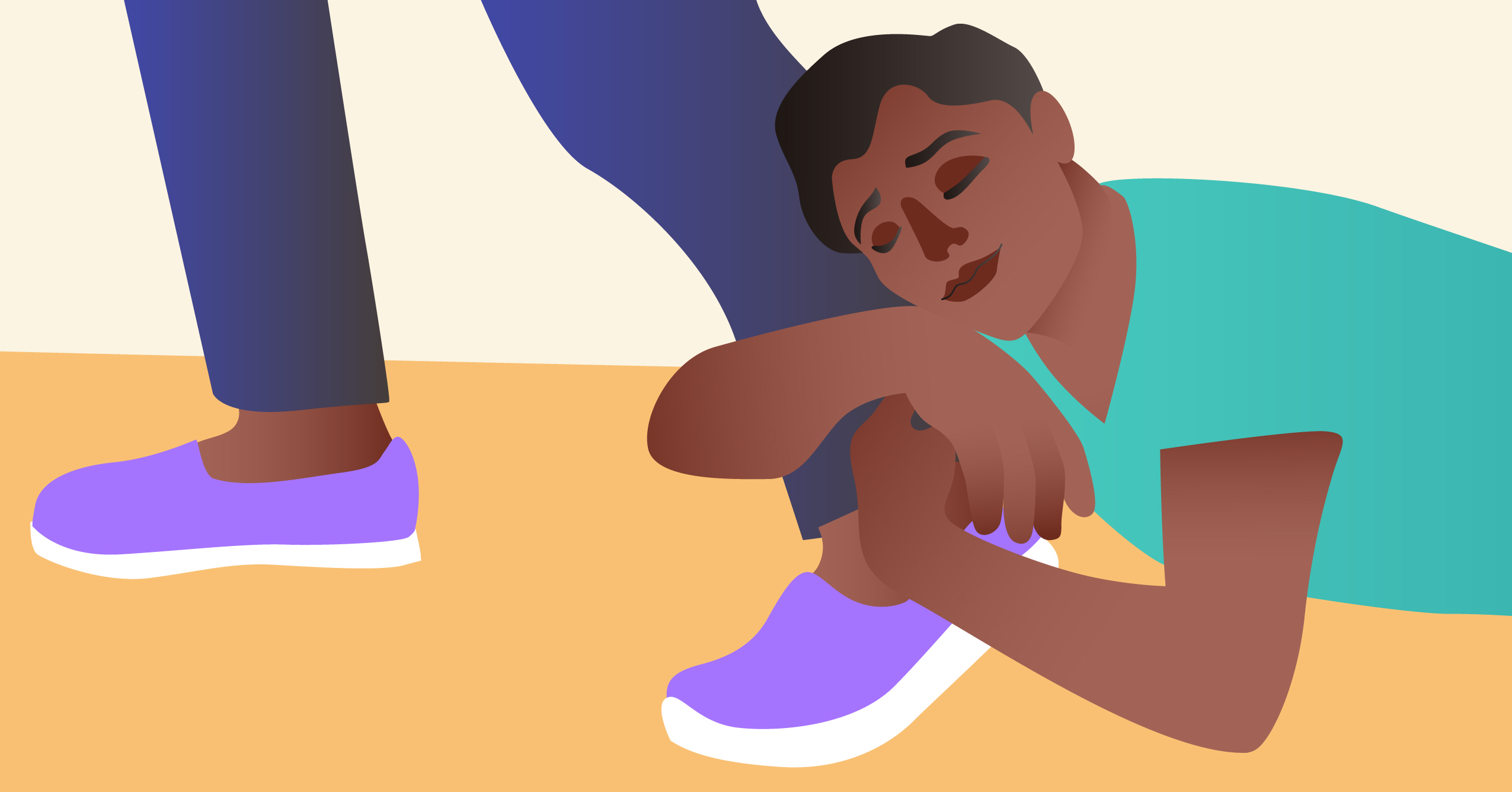
For those new to the term, attachment theory suggests that our early relationships shape how we connect with others later in life. If someone grew up in a supportive and healthy environment, they’re more likely to form positive attachments in romantic relationships.
Conversely, if they experience unhealthy dynamics with their caregivers, they might struggle with dysfunctional relationships or be drawn to partners who mirror those early experiences, even if those experiences are negative.
Relating this to one-sided relationships, couples with different attachment styles, like anxious and avoidant, often fall into an unbalanced dynamic. The anxious partner might overextend themselves to please their partner, while the avoidant partner may feel overwhelmed by this attention, leading them to invest less in the relationship. This mismatch can create a cycle where one partner gives too much, and the other doesn’t give enough, causing an imbalance in the relationship.
4Emotional Immaturity
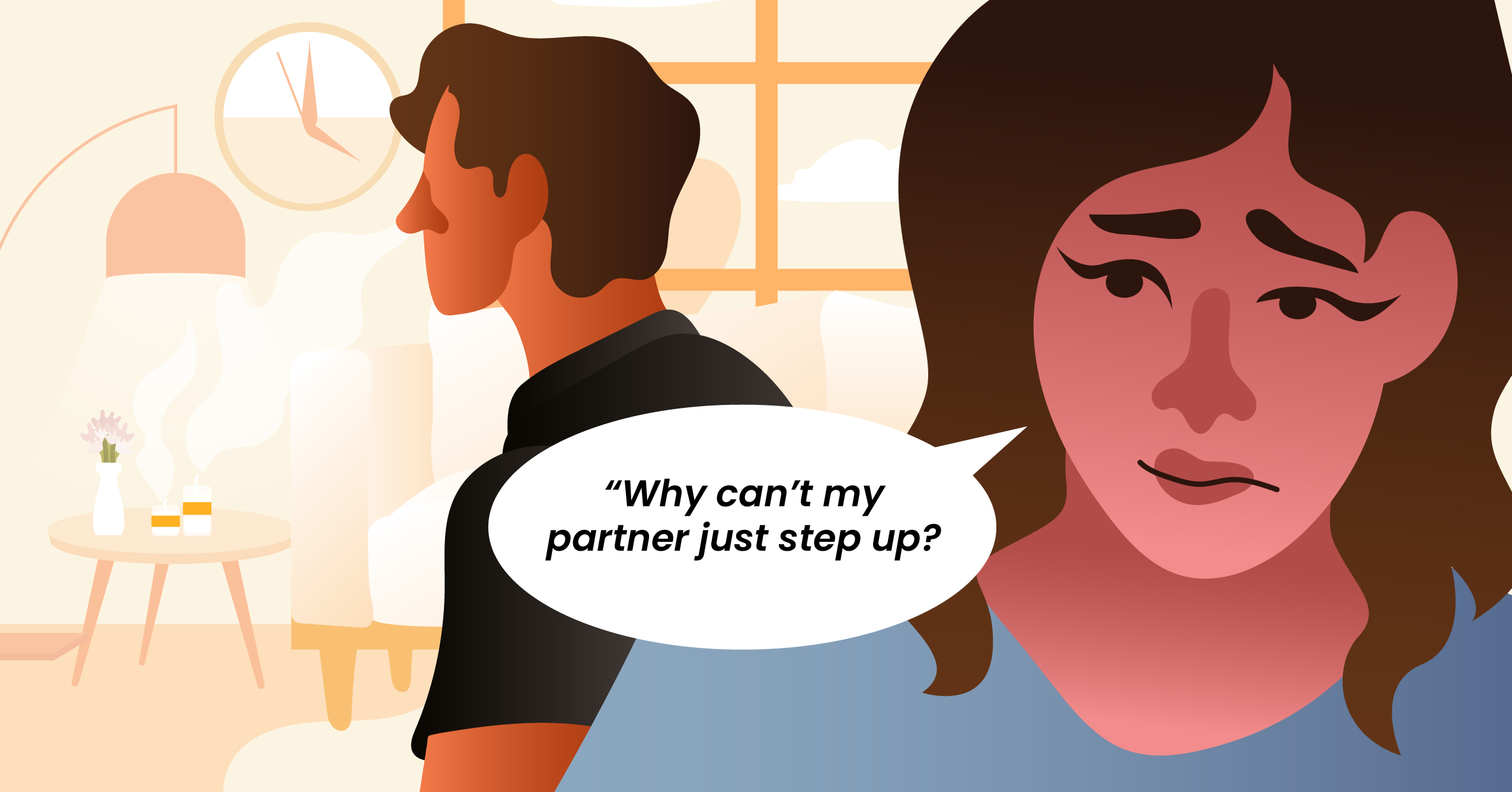
Most givers have probably asked themselves this question at some point:
“Why can’t my partner just step up?”
Often, the reason is that their partner may be emotionally immature. They might lack a strong sense of commitment, accountability, and responsibility. In a way, they’re still a child in the adult’s body, pushing them to offload the burden and effort of the relationship onto their partner and making them feel like a caregiver.
-
₱2,000.00
-
₱1,490.00
-
₱3,395.00
-
₱450.00
5Mismatched Relationship Goals
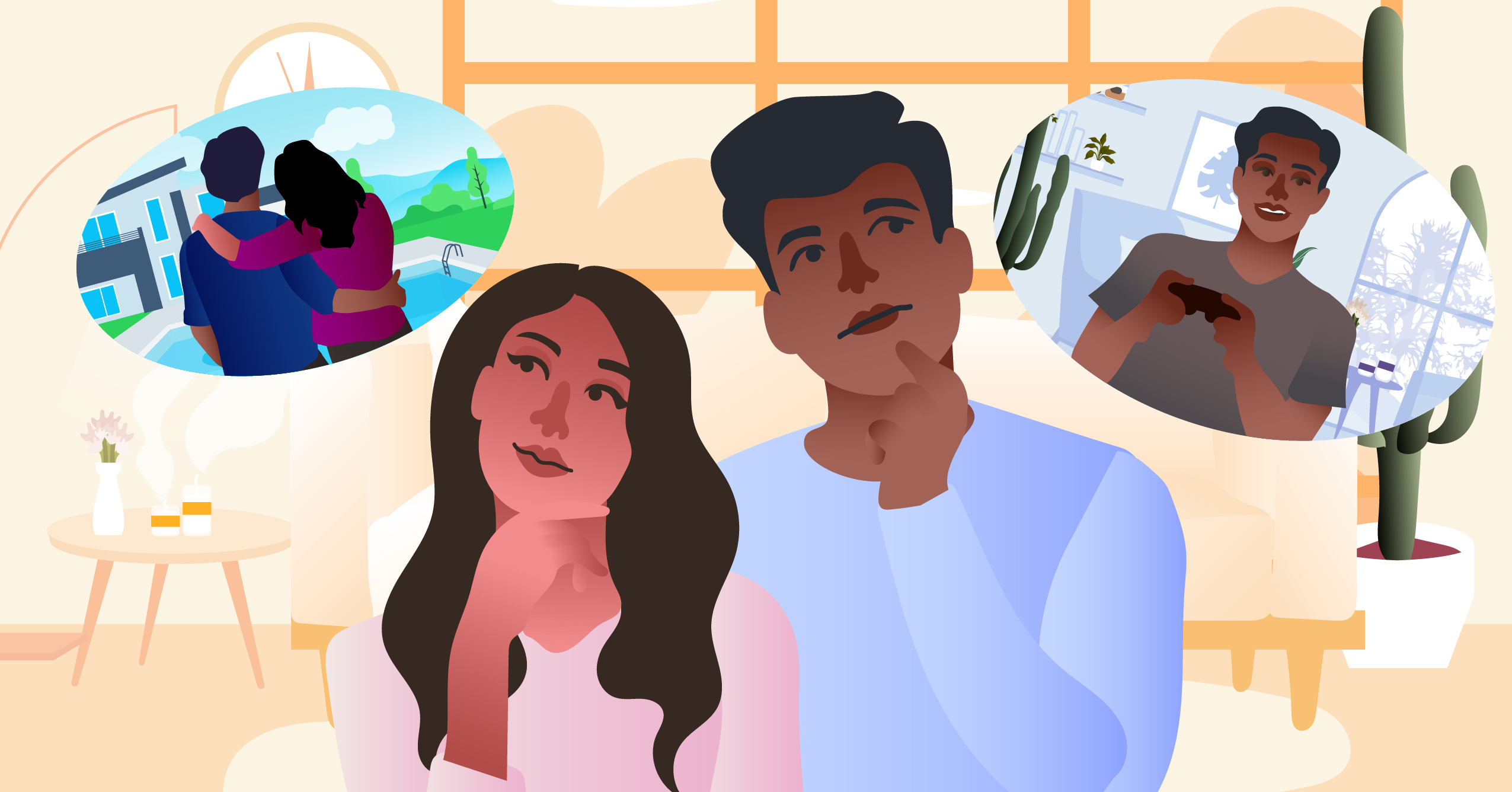
Sometimes, couples just view the relationship differently. For example, the giver might see it as a serious, soulmate-level connection, motivating them to go all out for their partner. Meanwhile, the taker might still be weighing on their future with their current SO.
How to Handle It

Unfortunately, there are no specific instructions that could change the relationship dynamics. Handling a one-sided relationship varies from couple to couple; what works for one may not work for another.
One thing’s certain, though— fixing a one-sided relationship requires teamwork. It’s the only way to make meaningful progress. Below are some of the things you and your partner can do:
- Reflect on your actions and why you’re doing them. Assess your behavior toward your partner and see what you can do to help fix the dynamic.
- Talk to them—let it all out. Communication is crucial when dealing with a one-sided relationship. Use a neutral tone and be calm as you express the issues. Listen intently, as well, as this could help you and your partner figure out what you can do to work through the issues.
- Consider getting couples counseling. Get a professional mediator who could offer a fresh perspective on the relationship. They can also provide specific steps and strategies to guide you both in the right direction.
- Focus on yourself for a while. You need to fill your cup, so go ahead and spend time with yourself and the things you love.
- If you’ve tried every possible solution and the relationship isn’t improving, it may be a sign to end things. Sometimes, healing separately is the best path forward.
-
₱2,850.00
-
₱2,455.00
-
₱1,745.00
-
₱1,215.00
Takeaway
Getting into a one-sided relationship can lead to many physical, mental, and emotional problems in the long run, which is why people need to recognize the signs and prevent themselves from it.
As for those going through this setup, it doesn’t mean your relationship is doomed. There are ways to turn things around, but you and your partner must be equally committed to making those modifications.






















